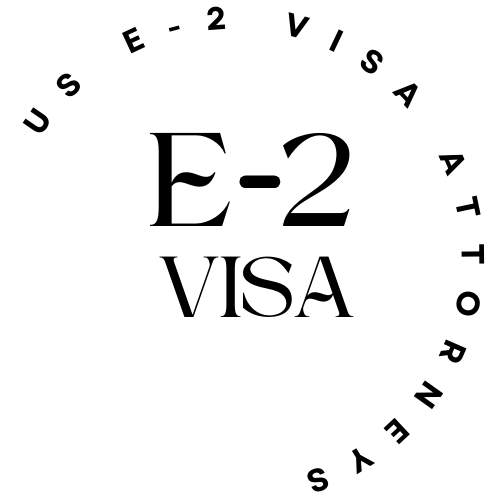The initial step in pursuing an E2 visa involves confirming that both the investor and the business share the same nationality, which is required for E2 visa eligibility, and verifying the existence of a relevant E2 treaty with the investor’s country. This step is straightforward for individual investors but can become complex when multiple partners of different nationalities aim to establish a business together under E2 visa status.
Investment Decision: After confirming your eligibility for an E2 visa, the next step is deciding whether to invest in an established business, such as a franchise purchase, or to initiate a startup. Choosing to start a new venture necessitates the creation of an extensive business plan. This process typically involves engaging with specialists skilled in business establishment or those who craft E2 visa business plans, often incurring costs in the thousands of dollars. A thorough business plan should outline the specifics of the investment, including a five-year financial outlook, the business model, a market study, and strategic objectives.
Establishing and Verifying Investment Funds. In the process of establishing and running a business, it’s imperative to demonstrate the origin of your investment funds. A key component of the visa application is to prove that these funds are derived from legitimate sources, are controlled by you, and are legally yours. Appropriate sources might include inheritance, accumulated savings, or proceeds from selling property. Importantly, funds from illegal activities, such as prostitution or criminal operations, are unacceptable. Documenting the legitimacy of these funds is critical and can be substantiated through bank statements, sales receipts, or documentation of personal loans. If the investment involves financial contributions from others, the nationalities and investment amounts of these contributors must be scrutinized to ensure they do not jeopardize the primary E2 applicant’s status.
Ensuring Investment Commitment and Assessing Risk. Demonstrating that your investment is irrevocably committed and at financial risk is essential to qualify for E2 status and to recognize the inherent risk of investment loss.
Investment Strategies and Assessing Substantial Investment. The E2 visa supports for-profit ventures that are likely to yield significant economic returns for the investor and their family, excluding non-profit endeavors and passive investments like speculative land purchases. The application should detail the products or services offered by the enterprise. As detailed in our blog, “Minimum Investment Amounts for E2 Investors,” identifying a sufficiently substantial investment amount is critical for ensuring the venture’s potential success.E2 Visa Requirements:
- Demonstrate a “substantial” investment, with funds committed to an active, profit-oriented business.
- Own at least 50% of a business established through a treaty between the investor’s country and the U.S.
- Ensure the business generates sufficient profit beyond just supporting the investor and their family.
E2 Treaty Investors
As specified by the USCIS, effective December 23, 2022, amendments to Section 101(a)(15)(E) of the Immigration and Nationality Act (INA) have updated the eligibility requirements for E visas. Following these revisions, for all E-1 and E-2 visa applications submitted from this date forward, USCIS may require additional proof concerning how applicants acquired their nationality from the treaty country to ensure adherence to the updated provisions. Moreover, for applicants who gained treaty country nationality through an investment, USCIS might request further evidence to verify that the applicant has resided in the indicated treaty country for a continuous period of at least three years at any time before submitting their application for E-1 or E-2 status. The relevant statute now reads: (E) An alien who is eligible to enter the United States under the terms of a treaty of commerce and navigation between the United States and the foreign state of which the alien is a national. This includes aliens who have obtained their relevant nationality via a financial investment and who have not previously been granted status under this clause. The statute requires that the alien must have been domiciled in the foreign state, where they are a national, for a continuous period of no less than three years at any point before applying for a nonimmigrant visa under this clause. This section also covers the spouse and children of such an alien, provided they are accompanying or following to join the alien.
